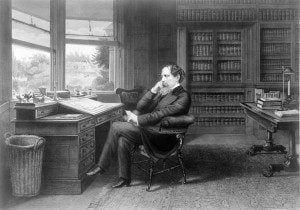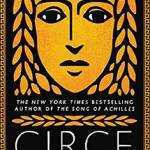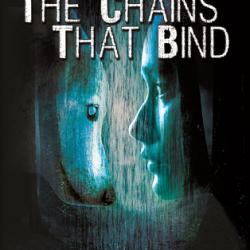 For a self-published author, Digital Rights Management sounds so sensible, doesn’t it? Many e-publishing platforms allow authors to opt in for DRM, which is presented as a technology that prevents people from copying and sharing your work where it hasn’t been authorized. It claims to protect your copyright for you; and who wouldn’t want that? Many of my new author friends insist it’s the perfect idea. But I’ve been looking into it, and based on my research, my own awareness of the issues surrounding it, and the advice of people who have been self-published for a while, I’m opting out. Here are the reasons why:
For a self-published author, Digital Rights Management sounds so sensible, doesn’t it? Many e-publishing platforms allow authors to opt in for DRM, which is presented as a technology that prevents people from copying and sharing your work where it hasn’t been authorized. It claims to protect your copyright for you; and who wouldn’t want that? Many of my new author friends insist it’s the perfect idea. But I’ve been looking into it, and based on my research, my own awareness of the issues surrounding it, and the advice of people who have been self-published for a while, I’m opting out. Here are the reasons why:
I Want You to Keep My Book if You Bought It
This is perhaps the most significant one. You may remember a couple of years back that there was a big kerfuffle because, when Amazon had a disagreement with a certain group of authors, they pulled their e-books from their site – and thousands of people who had already paid for books by those authors simply had those books arbitrarily deleted from their Kindle accounts?
Digital Rights Management (DRM) is the technology that allowed them to do that. And in theory, if Amazon decides to take issue with you or me for any reason, they can just take the book you bought away from you.
I don’t want that. I think if you paid for the product, you should be able to keep it. If something happens and you didn’t back it up, I suppose that’s beyond my control. But to prevent you from reading it on any other platform, and then messing with your access to that platform? Just no. I have more respect for my readers than that.

It Just Confuses the Reader
A lot of people heard about this issue, and, rightfully, they now distrust DRM technology. Some people (many people) absolutely will not buy a book if it has this technology enabled. Some won’t even buy digital books at all as a result. I want to maximize my potential audience, so I don’t want to discourage them.
It Doesn’t Work
As a traditionally-published non-fiction author, I had the opportunity to see this in action with the publication of The Witch’s Eight Paths of Power. My publisher released my book on all the major e-platforms, where it was available for pre-order before it was released. Within 24 hours of its listing for pre-order it was available on Pirate Bay and Utorrents!
The truth is, DRM only protects the sharing of books by honest people who probably wouldn’t do it anyway. Book pirates – the guys who, nominally, DRM is supposed to be protecting our books from – can crack this coding in a New York minute. Most of them host their web servers in countries that do not have the same copyright laws that we do and thus are extremely difficult to prosecute. Periodically I do a Google search of my ebook and ask the top sites to take it down, which is usually sufficient, but it’s something I have to keep on doing, and keep on doing. Therefore, I must conclude that DRM doesn’t really serve any purpose. It’s like airport strip searches and foil seals on the inside of pill bottles. It’s only an illusion of security.
Most People Are Honest – Really!
We live in an age of fear and distrust. We have been convinced that humanity is evil and we must watch each other like hawks to make sure that no one cheats. But it’s not necessary. Studies continue to prove that most people are honest, and will honestly pay for the products they want to buy.
If you leave a donation bowl at the front gate of an event and ask everyone to contribute $5, even if you don’t look at it again until you leave, you will usually end up with more money than you were expecting! Some people sneak in for free, it’s true; we’ll always have them. But most people won’t. And there will even be a few people with a few extra dollars who will often throw in just in case somebody who is less fortunate can’t.
Most people realize that a writer isn’t going to continue writing if they can’t make a living at it. They’ll support honest work. There are always a few bad apples, it’s true; but there’s no need to let them spoil the bunch!
Word of Mouth is Still the Best Way to Sell
But honestly, why would you want to prevent readers from sharing your work anyway? Especially if you’re an indie author trying to get the word out? Word of mouth is still the best way to sell your product. Allowing more people to sample your product exposes it to more people, which encourages more people to buy.
Take Baen Books, for example. For those of you who are not sci-fi readers, Baen is one of the foremost science fiction publishers in the industry. They have developed a loyal cadre of fans who will now pick up a book simply because it has their logo on the binding. One of the ways in which they’ve done this is by giving books away.
Yes, you read that right! If you go to Baen.com, you will find a free library full of ebooks by their top-ranking authors that you can just download for free! Many, many of those books are New York Times bestsellers. For a while, they were even including CD-ROMs in their hardcover books that consisted of an author’s entire library on ebook, along with website links, bonus material such as fan-filk Mp3s about the series in question, and even freebies from other authors. The only reason why they stopped is that CD-ROMs fell out of fashion. Mother of Demons, Eric Flint’s first novel, was available for free on Baen’s website from the moment of its publication; one of the early pioneers of e-publishing. Last year they printed a 20-year anniversary special leather-bound collector’s edition.
Further, at Baen you can continue to find the first book (at least) of almost every series they produce available in whatever e-format you prefer, absolutely free. They know that avid readers are addicts. It’s like crack – they hook you with the first free sample!

People Still Prefer Paper Books
Perhaps it’s different if you’re publishing strictly in e-format. But it you’re publishing in print format as well (and why wouldn’t you, with the technologies of CreateSpace and other print-on-demand services at your fingertips?) then your e-book is a sample that gives people an idea of what you do. It’s a bit like a library. I often don’t pay full price for a book myself; not at first. I’ll read it at the library or I’ll get an e-copy or a secondhand copy and check it out. But if I really like it, I will buy a copy for my bookshelf as an investment.
Some people have converted completely to Kindle and the online market, and they’re never going to read anything else. But chances are that their friends aren’t like that. It’s hard enough to find other readers in the first place; most of us go to book clubs for that, if we’re serious about it. So, it’s not like they’re going to share it around to everyone they know. And if they do, chances are that even their reader friends prefer paper books.
The truth is that most of us still do; even millennials, say the studies. It’s the monkey programming that we’ve inherited from our primate ancestors. We can’t conceive of things on the internet as being entirely real. We see them as ephemeral and somehow magic and maybe untrustworthy. We would rather have things we can touch and feel. Financiers know this human frailty quite well and take advantage of it; that’s why everything’s done by debit now instead of cash. How many times have you “accidentally” overspent your bank account because you didn’t have a clear idea of what was in it? But if you held the actual cash in your hand . . .
I make a decent royalty on e-copies of The Witch’s Eight Paths of Power now. But it’s still only a third of my total royalties. The fact is that hard copy books will remain the primary form of book sales for many years to come, and e-books are going to be a sideline for a while, doing better service as a teaser to sell the hard copies.

Copyright is a Scam to Protect Corporations, Not People
In principle, we’re all agree that copyright is a good and fair idea. We believe that the creator of a work has the right to control their work, and to make money at it in any way they choose. We visualize copyright laws as protecting the works of a small creator, and see them as a way to defend that creator from pirates or, worse yet, big organizations trying to take advantage of the little guy by stealing his work.
But the truth is, corporations have completely co-opted the enforcement and practice of copyright laws in G8 countries, and they are, even now, in the process of being rewritten with corporations in mind. People like Disney and Sony benefit from the current copyright system; you and I do not. Let me explain.
Copyright is an assumed right. It’s not like a registered patent. You, as the creator of your work, are assumed to have full copyright over it from the moment you create it. You can register it with copyright authorities, but that’s just one layer of possible protection. It doesn’t prove that it’s yours. If copyright were intended to protect the interests of the small creator, why is that? The holder of a patent is absolutely the master and commander of the rights associated with that patent. A registered trademark is considered “intellectual property.” Why is there no formal way to register an absolute official control of a copyright?
Copyright falls under civil law, not criminal law. If there is an issue with your assumed copyright, you don’t automatically get the protection of the law. You have to take it to court.
Once you do, in civil law it’s a little easier to succeed at a suit than in criminal law. You don’t have to prove that someone stole you work “beyond a shadow of a doubt.” You have to prove that it was likely. Okay, that sounds like good news for us, right?
But, let’s consider this for a moment. Suppose Disney lifted the plot of your self-published fairytale fantasy right from the pages of your novel and made a movie out of it. Do you, as a private individual, have the money to take Disney to court? Probably for years, with appeals and countersuits and gods only know what else that their million-dollar lawyers know to try?
This is part of the reason that writers have traditionally published with larger houses. Publishing houses have the accumulated resources to go to court for you, and they will, because it’s their livelihood that’s affected too when you accord them the printing rights. But none of that helps the self-published author.
Also, why on earth should copyright be protected more than a century after your death, as was just signed into law by most of the G8? Most of us aren’t going to be Tolkien or Edgar Rice Burroughs, and we’re not going to write enduring classics that people will be making movies about 200 years later. But even if we were – what have my great-grandchildren done to earn the right to be the curators of my idea, except win the genetic lottery? Doesn’t anyone else think that if my creation has survived a century past my death, that it more properly belongs to the world cultural milieu? Isn’t it more “myth” than “intellectual property”?
Even worse, these copyright laws give large corporations the power to act as gatekeepers to assure that you can only read and hear what they produce. Because only corporations can enforce copyright, corporations corner the fiction market. Google, like most search engines internal or otherwise, weights its search function to the most number of hits, and the new release at Harper-Collins is going to get a bigger launch than my little series. So how are you going to hear about me? Since tiny, independent bookstores are disappearing due to heavy competition from the syndicates like Barnes & Noble (and Amazon,) where are you going to find the books that aren’t the current top bestsellers? Every year, the science fiction section at Chapters gets smaller.
Authors in the Industry Only Get Paid When the Book First Sells Anyway
Let’s consider paper books for a minute. In the traditional publishing industry, a writer is paid a royalty on book sales. This might be based on the wholesale or retail price, and is typically expressed as a percentage. In general, a writer only receives that percentage when a retailer purchases their book for sale. They don’t get any money when you borrow it from the library, or when you buy it second-hand. Not one dime.
Furthermore, a larger retailer usually has a deal with the distributor that allows them to send books back if they don’t sell! These returns are deducted from each quarterly royalty cheque, and the writer is paid whatever remains. And that’s only if they have already paid off their advance, which is essentially considered to be a loan against future royalties.
So, if I’m not getting paid as much for the redistribution of the ebook, how is this different from the existing conditions of the industry?
Amazon, for all its drawbacks, helps on this point. Nowadays a publisher subcontracts Amazon to print-on-demand for them, and an author collects royalties through those sales as well; though the retail and wholesale prices are usually less than they are for other stores, and the writer subsequently makes a smaller royalty per sale. But their market is so huge, it’s worth it to take the hit. Or it did. Now, Kindle has started allowing people to return ebooks if they’ve read less than a certain percentage of it. As if you weren’t already getting an amazing deal.
I was told point blank by much more experienced authors in the business than myself when Eight Paths was published that I would never see a dime more than the advance. They were wrong, but I still can’t say my royalty payment is huge. It won’t pay my bills. Honestly where I made the most money on my book was by selling it myself! Publishers allow you to buy books from them at a reduced price that is equal to or less than that which is offered to retailers. Then you can sell them as if you were a retailer yourself. To this date, my cash in hand from doing this more than doubles what I’ve received in royalties.
This all comes back to spreading the word. If other people have read your ebook and they want a hard copy, you are more likely to sell more of them if people already know what they’re paying for. And regardless of how you slice it, independent or traditionally published, that’s where the money, such as it is, can be found.
Conclusion
In conclusion, I’m publishing my novelette without Digital Rights Management enabled. This doesn’t mean I’m releasing it under a Creative Commons license; if you share it without permission, technically you’re still breaking the law. But I trust you. I trust you to tell your friends and encourage them to buy it. If you don’t, maybe you’ll throw me a dime at Patreon so I can keep on writing. And if you do neither, I’m going to bank on my writing being good enough that I know you’re going to want the print-copy collection in a year’s time when it comes out. I know you’re an addict, you see . . .
“Showdown,” the first novelette in the Wyrd West Chronicles serial, is available now for pre-order on Kindle (release date March 20,) with other e-platforms to be released July 21. Novelettes will be published every two months, with a print collection in trade paperback to be made available once a year. I’m having a release party on the weekend to celebrate, and I’m offering a giveaway in return for spreading the word!
Like Between the Shadows on Facebook and never miss a post!
















